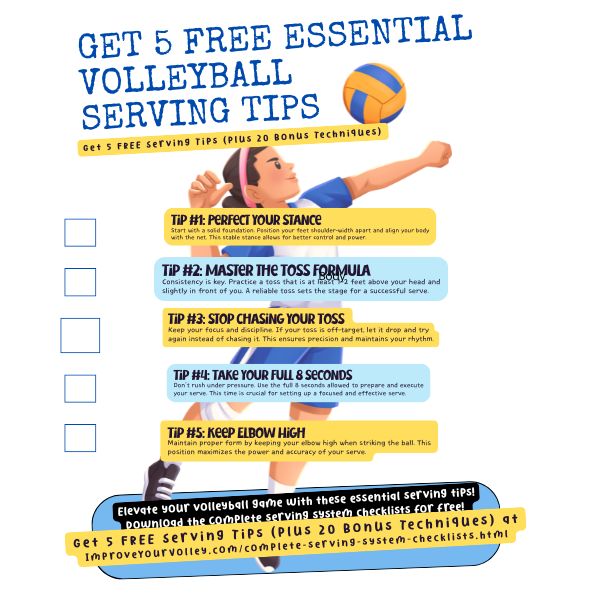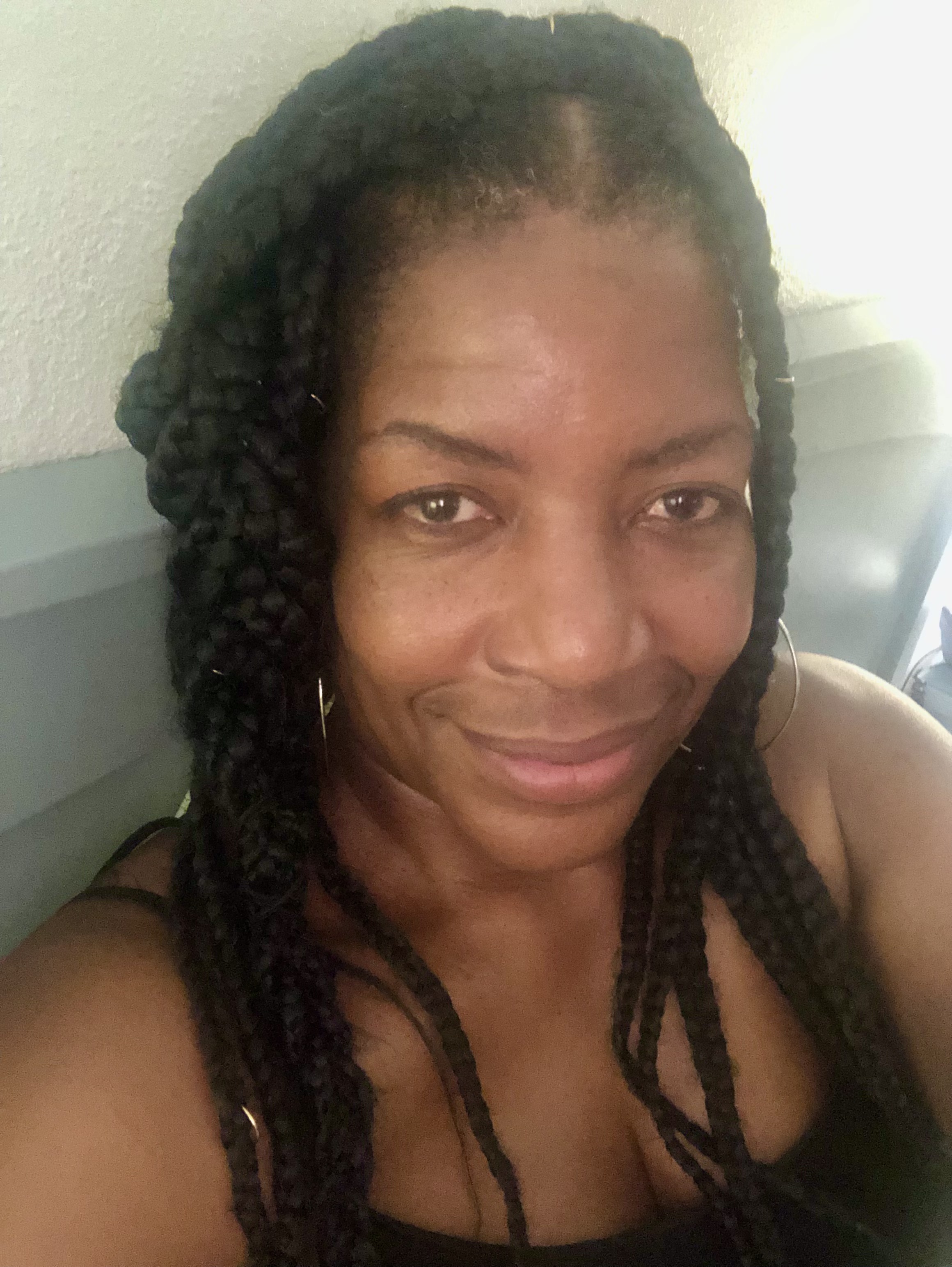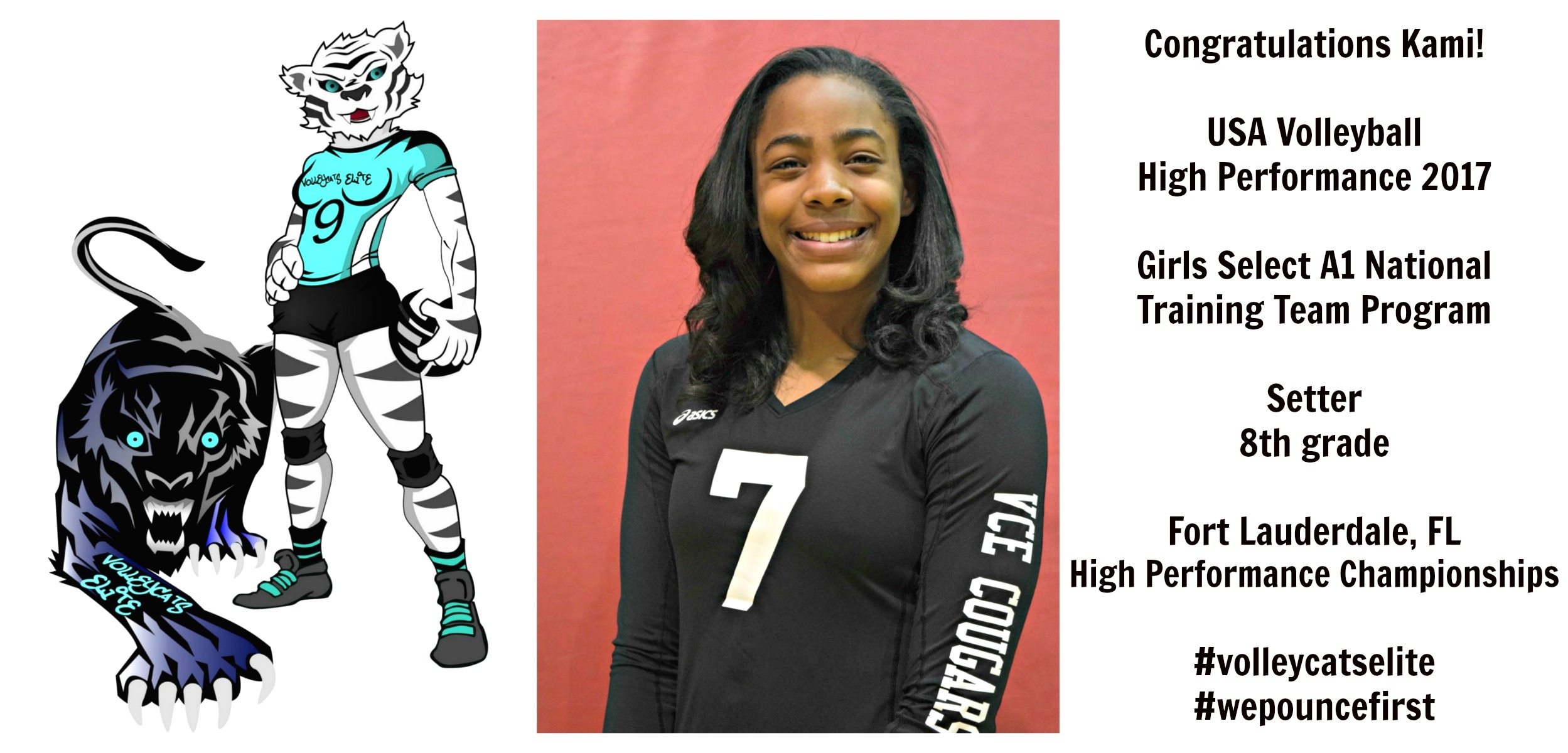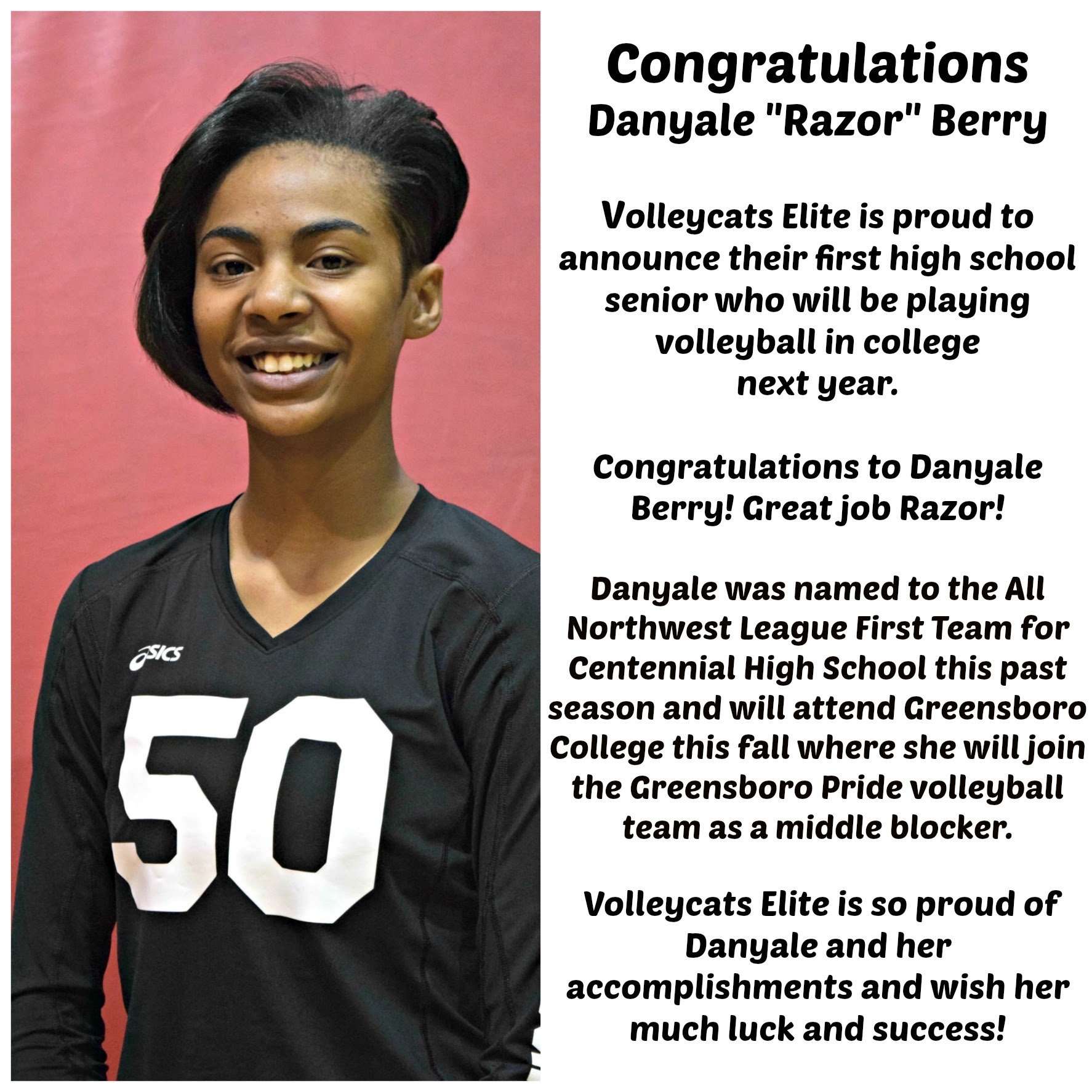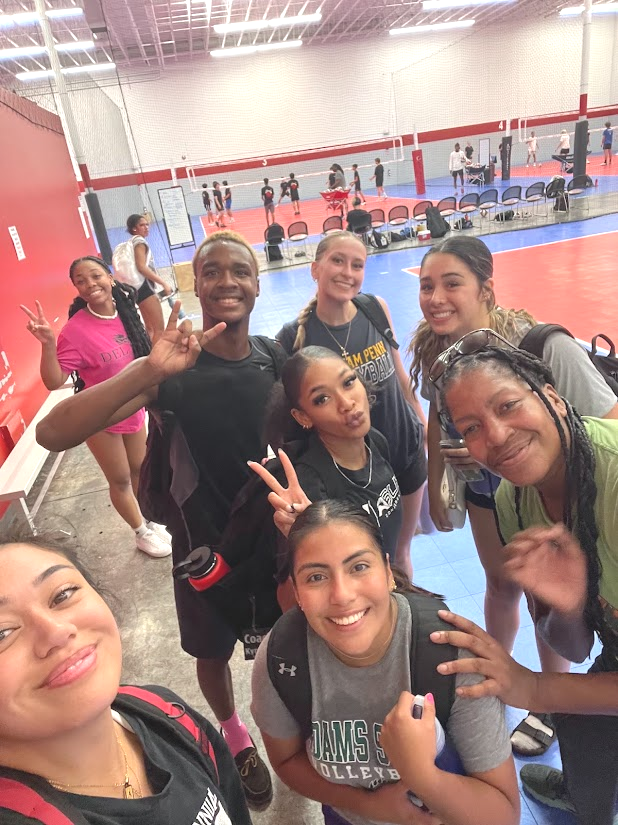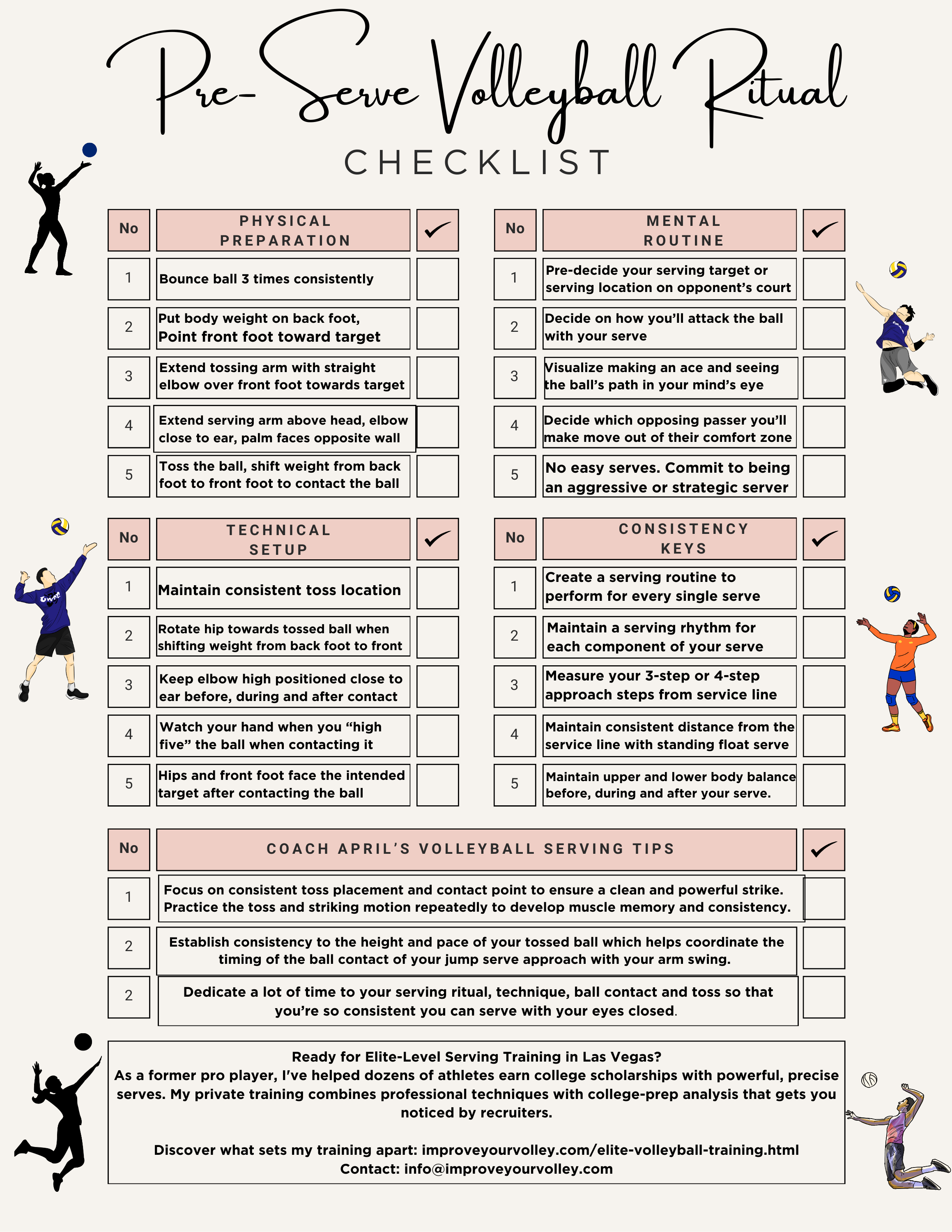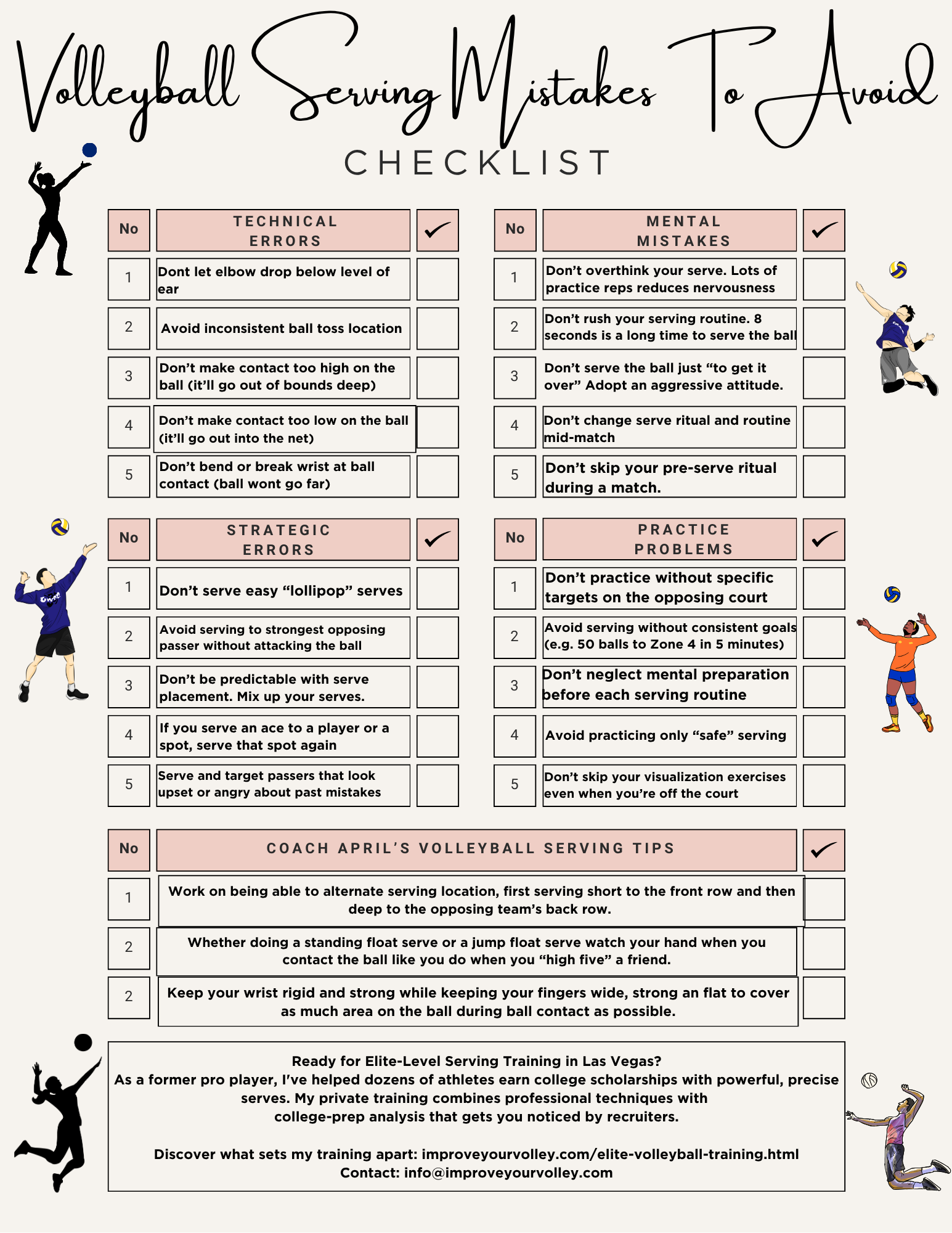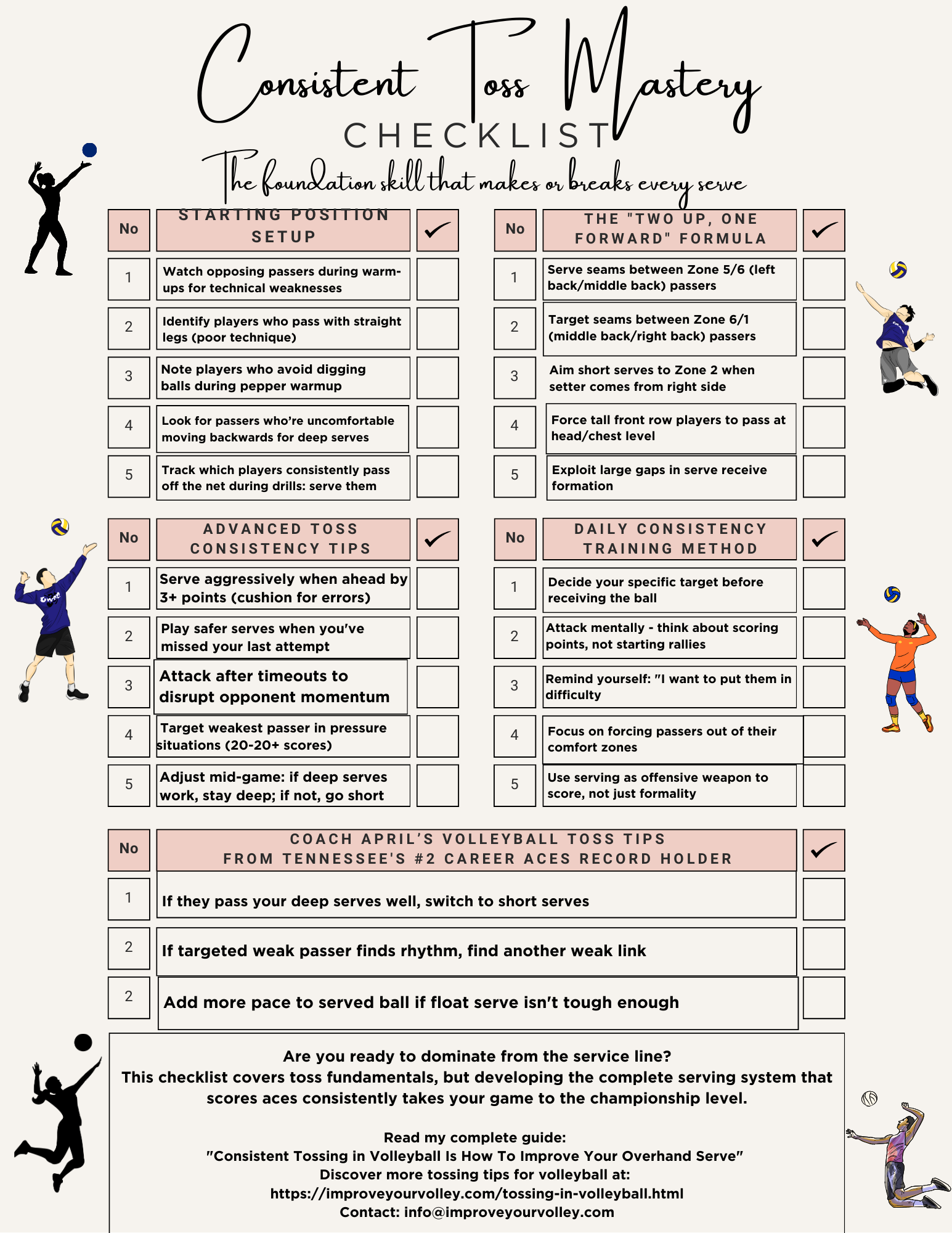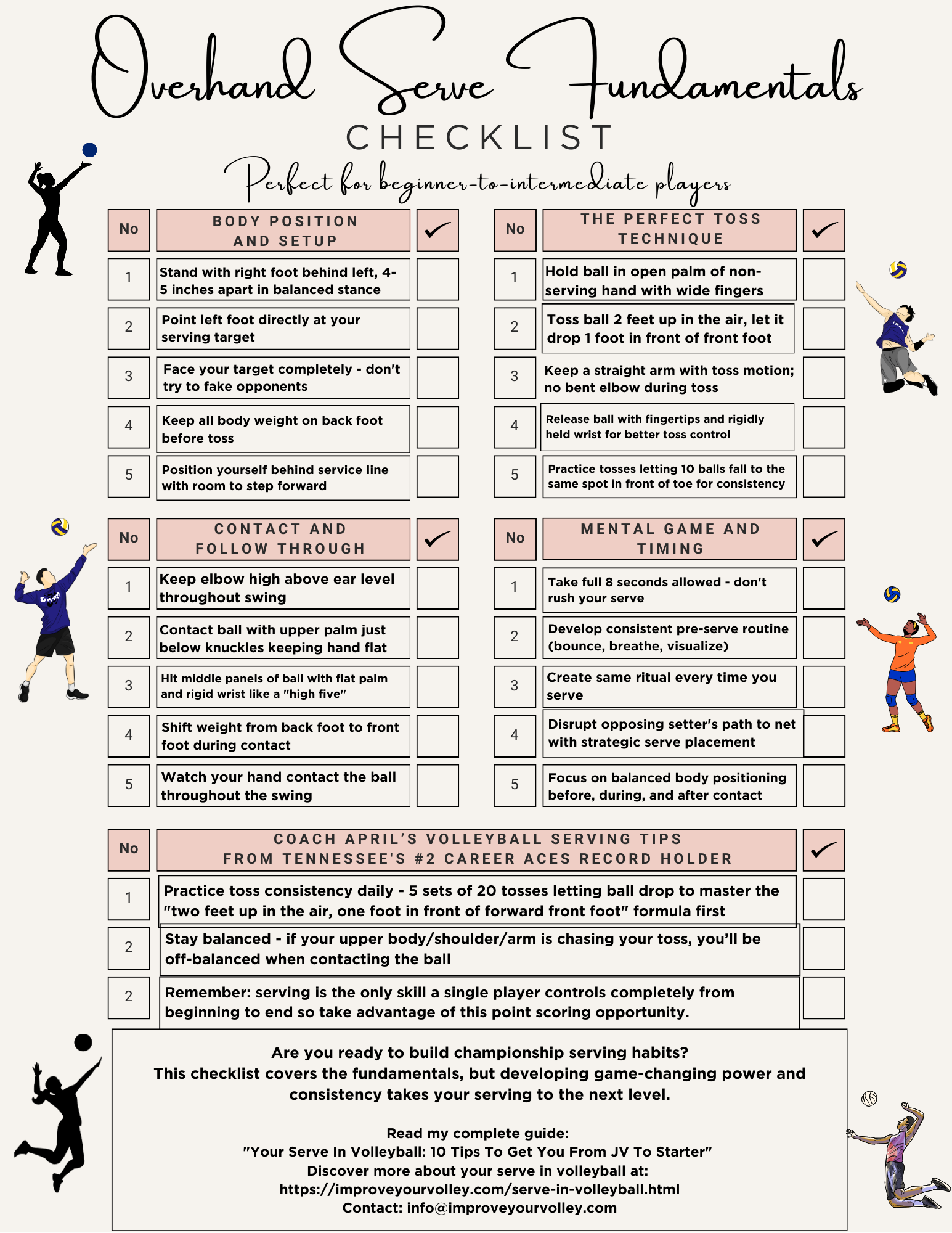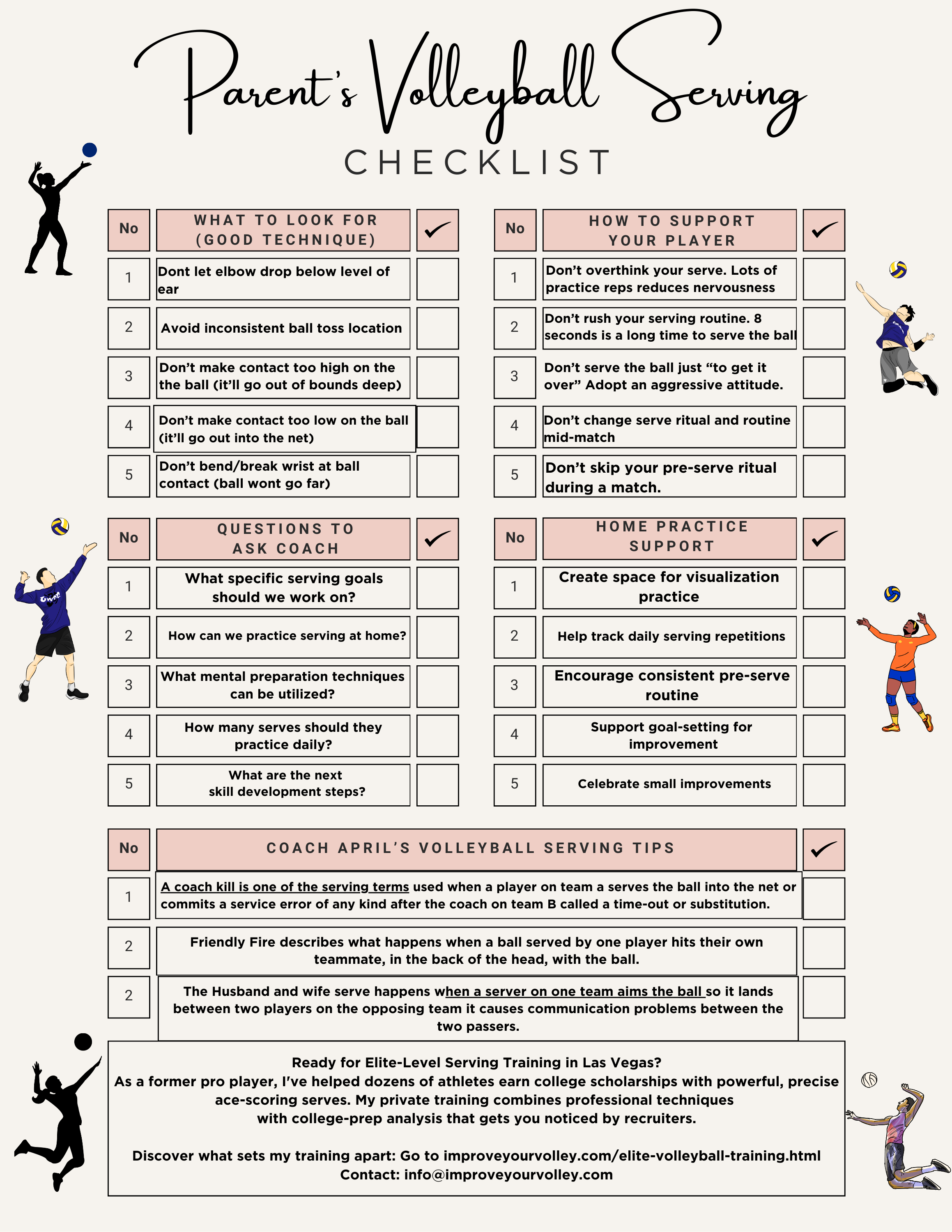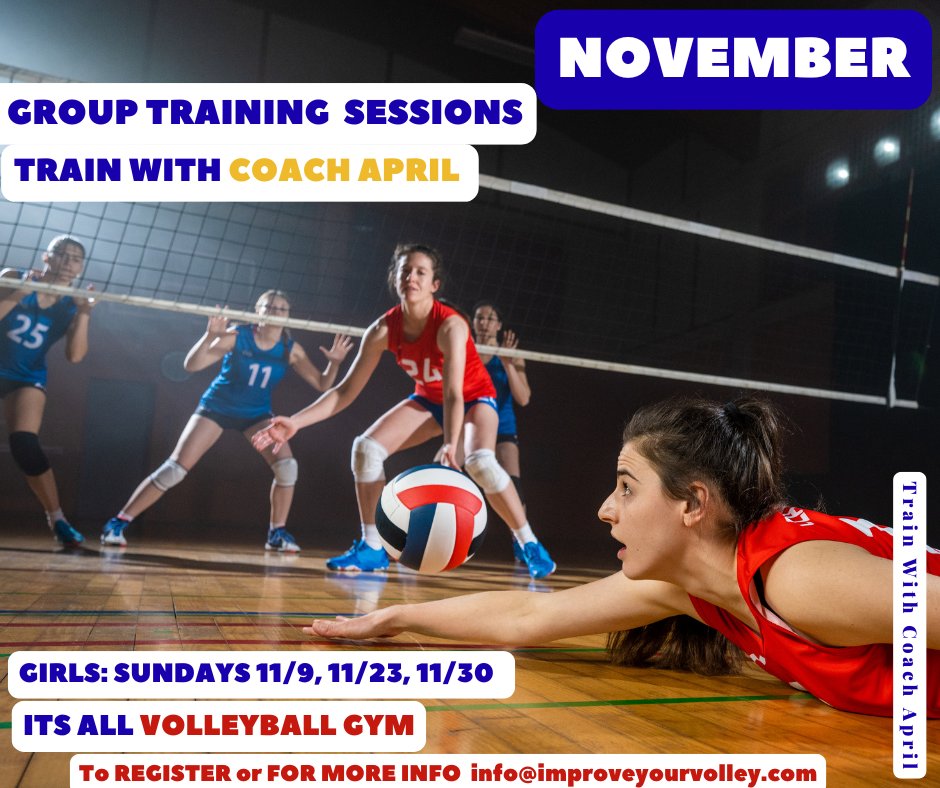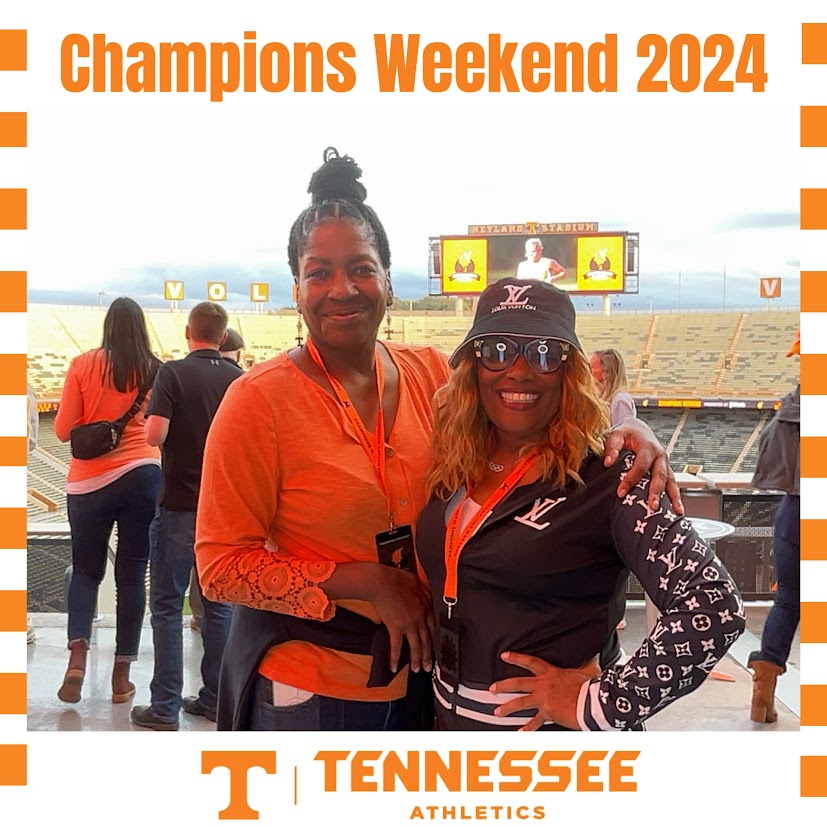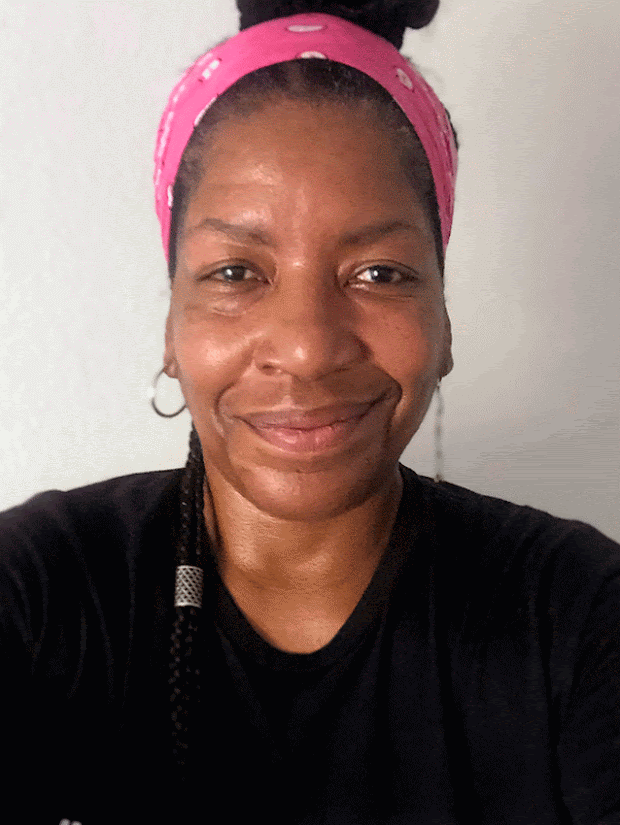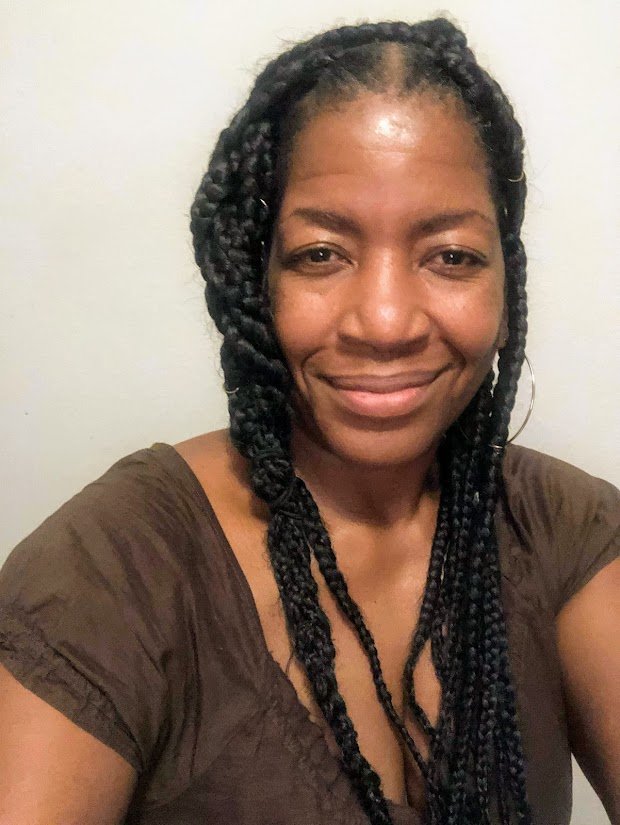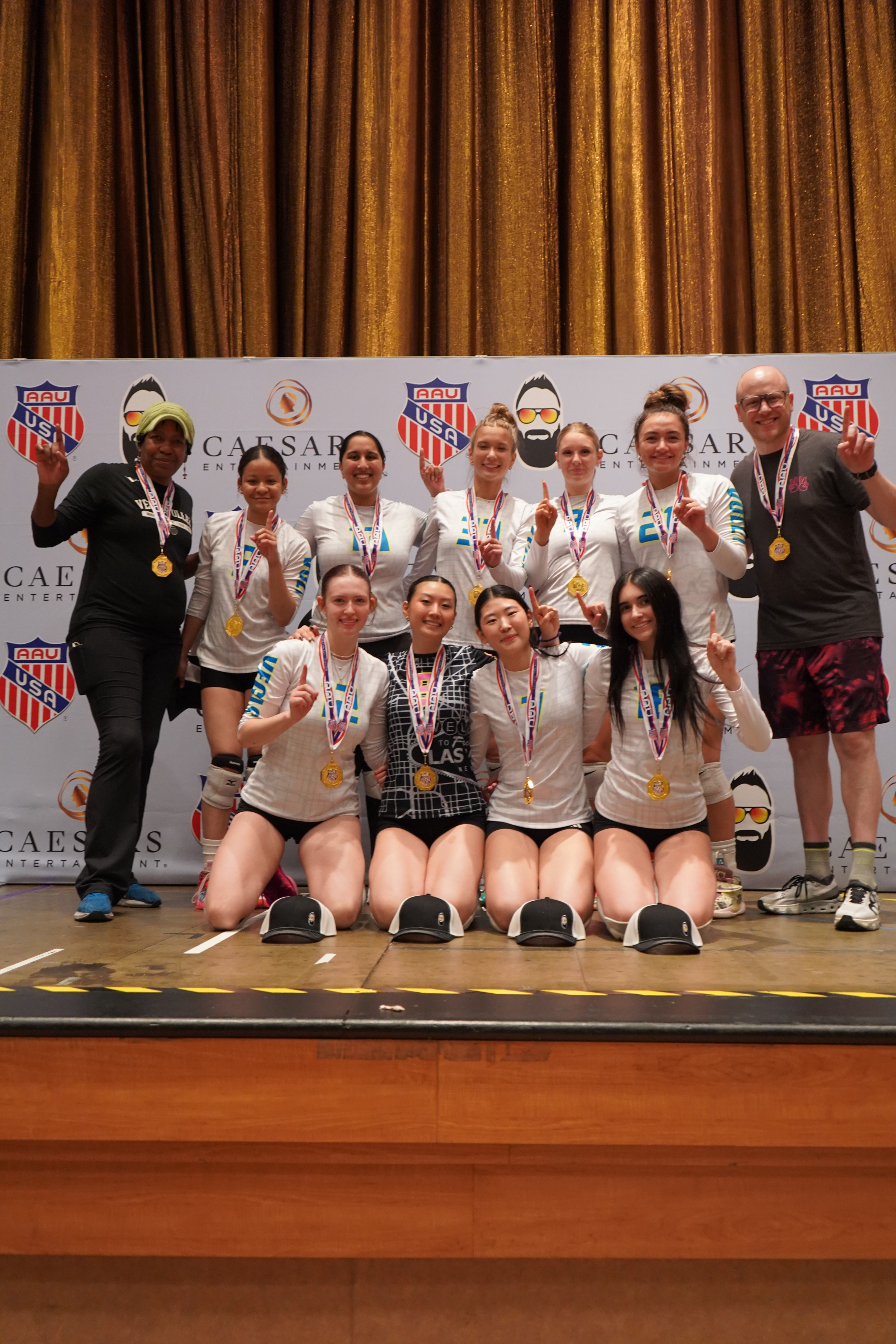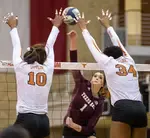- Improve Your Volleyball with Coach April
- Volleyball Private Lessons
- Top Personal Volleyball Coach
Top Personal Volleyball Coach, April Chapple Produces Powerful Passionate Prep Players
As one of Vegas's most experienced personal volleyball coach, April Chapple is known for producing powerful, passionate peaceful prep players with college style drills.
What sets my college-prep style of coaching apart from other Vegas' trainers is that I also focus on the mental aspect of the game with my clients.
As a player I was not always the tallest, and I taught myself how to use speed to my advantage.
But one thing I really worked to be was the smartest and the most emotionally stable not letting mistakes get to me.
Those are additional types of volleyball lessons I am qualified to pass on to my clients.
Volleyball at high levels is as much a mental game as it is physical. I focus intensively on
- developing mental toughness
- strategic thinking and forecasting
- the ability to perform under pressure
– skills that are crucial for success in college volleyball and beyond.
Every summer, current college players return to train with me, trusting that I'll have them ready for their upcoming season.
As A Part Of My Personal Volleyball Coach Brand I Use College-Level Drills and Techniques
Here are some of the advanced techniques and strategies I focus on with drills that simulate college play:
1. Rapid Fire Setting:
Setters must deliver accurate sets from anywhere on the court, often off imperfect out of system passes. These up tempo drills hone that skill under pressure.
2. Multi-Directional Defense:
Liberos and defensive specialists train to cover more court with less time to react, mirroring the expanded responsibilities in college play.
3. High-Tempo Offense:
Hitters learn to approach and hit off various sets at the accelerated pace typical in college matches.
Breakfast Club for College Players Liam sets BYU opposite hitter Kate Prior for a kill
4. Advanced Serve Receive Patterns:
We work on advanced serve receive formations that allow for more aggressive offensive options, similar to what you'd see in top college programs.
5. Sophisticated Blocking Systems:
I teach a range of blocking techniques, from swing blocking to advanced read blocking, preparing players for the speed and complexity of college-level attacks.
6. Dynamic Offensive Systems:
We practice fast-paced offensive plays that incorporate multiple attack options, training players to make split-second decisions under pressure.
Watch how Brooklyn (big white tshirt right front on the other side of the net) the shorter hitter blocker has to hit past and then block #83....using a quick armswing, aggressive spike approach and a high reach so she hits the ball before the block stops her.
7. Position-Specific Technical Refinement:
Whether you're a setter working on misleading the blockers or a middle blocker perfecting your slide attack, we dive deep into the technical aspects of your specific position.
These drills aren't just theory – they're proven effective.
Many of my players report feeling over-prepared when they hit their first college practices, a testament to the intensity and thoroughness of preparing my players during my Breakfast Club for College Players training.
Beyond the Court: What Do College Volleyball Coaches Look For?
College volleyball demands peak fitness which is why the collegiate volleyball athletes who are home for the summer already participate in their own strength training regimen that their college coach requires them to follow.
I focus on what college volleyball coaches look for like:
What Do College Volleyball Coaches Look For? 1. Physical Conditioning
1. Physical Conditioning
College volleyball demands peak fitness which is why the collegiate volleyball athletes who are home for the summer already participate in their own strength training regimen that their college coach requires them to follow.
To supplement their strength and conditioning summer program, my summer training program follows in that vein by establishing drills that require increased footwork speed, improved spike jump technique, consistent ball flat hand to the ball serving technique, and focusing on strong shoulder use when repeatedly pressing over the net when blocking.....all of these aspects and others like them are integrated into each of the basic six skills players need to perform in a way that builds the stamina and strength needed for collegiate play.
During my Breakfast Club for College Players summer training for college players in Vegas home for the summer we work on partner jump float serving technique where two servers at a time in two different lines serve behind Zone 1 and Zone 5 to a designated spot on the opposing court.
Pairs work together to get the ball "in" and if one player in the serving pair misses their serve neither of the two score a point for their team.
So no point for the two people serving and no point for the team they represent so the pressure feels like its double the weight.
The more we do this drill the more the server feels the weight of making their serve in.
What Do College Volleyball Coaches Look For? 2. Mental Resilience:
2. Mental Resilience
I practice mindfulness and stress management techniques to help you perform under pressure.
I talk to my clients about what makes them nervous in very specific moments and situations in matches and we work specifically to address those issues often re-enacting those moments in our sessions.
What Do College Volleyball Coaches Look For? 3. Time Management
3. Time Management:
One of the biggest aspects of entering collegiate sports that incoming freshmen have to adapt to is managing their time because their schedule and student athlete requirements instantly change the minute they step onto campus.
When most collegiate student athlete schedules look something like the schedule below being able to manage your time so you fit everything in is a priority.
Strength/Conditioning 5am -6:30 am or 6am-8am
Class One 8:30 - 9:45
Class Two 10:15 - 11:30
Lunch
Serve/Pass or Video 1:30 - 2:30
Class Three TBD
Practice - 3 hours 4-:6:30 or 5-7:30
Dinner
Study Hall/Tutor
This is type of schedule is usually a far cry from what a high school student athlete is used to, so adapting quickly to being able to manage your time and stick to the schedule everyone else on your collegiate team has to stick to is super important.
(Note in the scenario above I didn't even mention time to study and complete class assignments or meet with tutors which should be a priority as well.)
Being able to balance volleyball and academics is crucial in college, especially for those who have earned academic and/or athletic scholarships. I often discuss strategies with my college players home for the summer who request mentorship on this subject on how to excel in both arenas.
A Few Success Stories of Personal Volleyball Coach April Chapple
Here's what some of my athletes have accomplished:
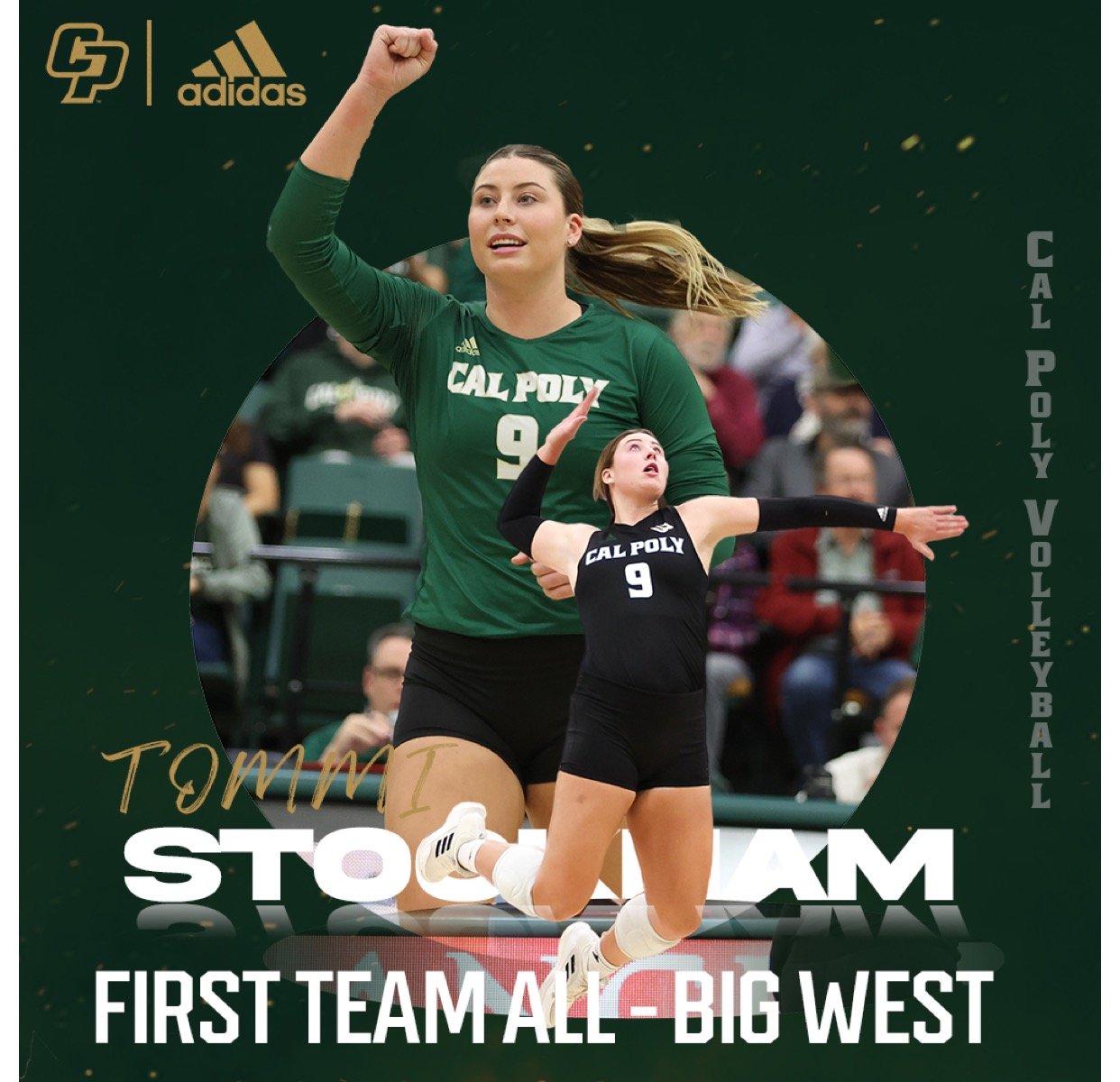
Tommi Stockham First Team All Big West Conference Team
Private Volleyball Lessons Client 3+ Years
Taking private volleyball lessons with me is a positive experience because the drills/exercises we do in my volleyball class, are usually done at a faster pace so players get more touches and repetitions on the ball and are use to playing at varsity and when necessary college speed levels.
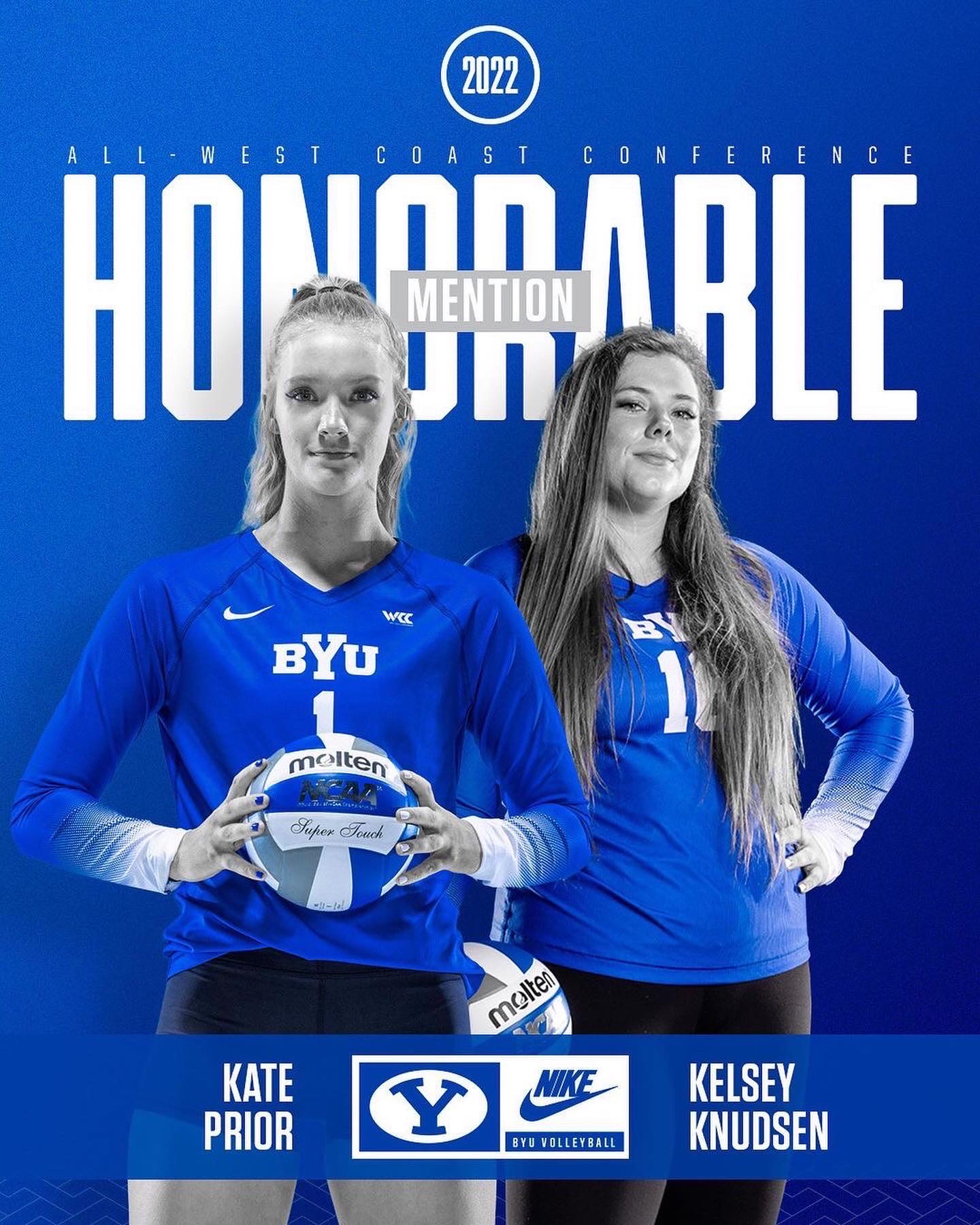
Kate Prior All West Coast Conference Team Honorable Mention
Private Volleyball Lessons Client 3+ Years
Taking volleyball lessons with me is a positive experience because my lessons help defensive and offensive players visualize, develop and identify realistic volleyball playing goals.
Adlai sets All West Coast Conference opposite hitter for BYU and Boulder City High school 2x -3A state champion Kate Prior during private volleyball coaching sessions.
Kate Prior is a 3 year private client of mine for the last few years of her high school volleyball career.
These success stories aren't just about athletic achievement.
Many of my players report feeling more confident, resilient, and prepared for all aspects of college life thanks to our training.
If your athlete struggles with consistent serve receive, gets subbed out, or is overlooked for playing time—this is the fix you’ve been looking for.

Struggling with passing consistency?
I help talented passers tired of getting pulled from games because of inconsistent serve receive skills BUILD passing confidence without expensive private lessons using the same 3-step system that's helped dozens of my athletes get recruited.
Download my eBook for $17.99 and start building the passing confidence that keeps you on the court—and gets you seen by college coaches.
From Lady Vol to Legend: Coach April Produces Powerful Passionate Players...is that you?
What Are You Looking For?
Click to Download Your Pre Serving Ritual Mastery Checklist pdf:
🎯Volleyball Pre Serving Ritual Guide -
Players! Learn How To Transform Your Serve from Weak to Weapon
Click to Download Your Parent's Volleyball Serving Checklist pdf
🎯Parent's Volleyball Serving Checklist Guide
Parents! Help Your Player Develop Championship Serves (Even If You've Never Played)
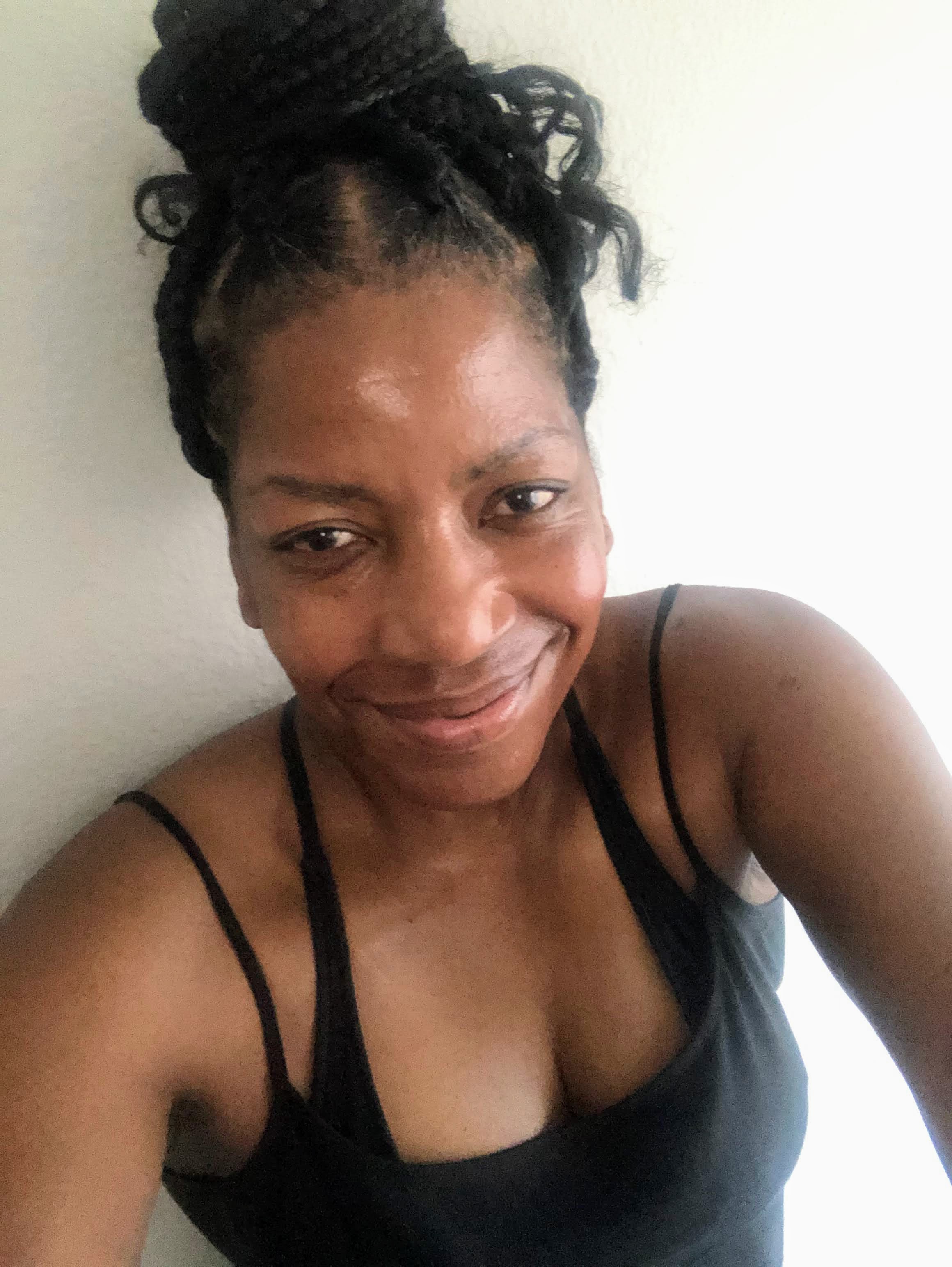
Hi there!
Thanks for stopping by. Hope you learned something today that will help you reach your volleyball goals.
Be sure to subscribe to my email newsletter so you can learn more each week!
Stay strong! Stay motivated!
-Coach April
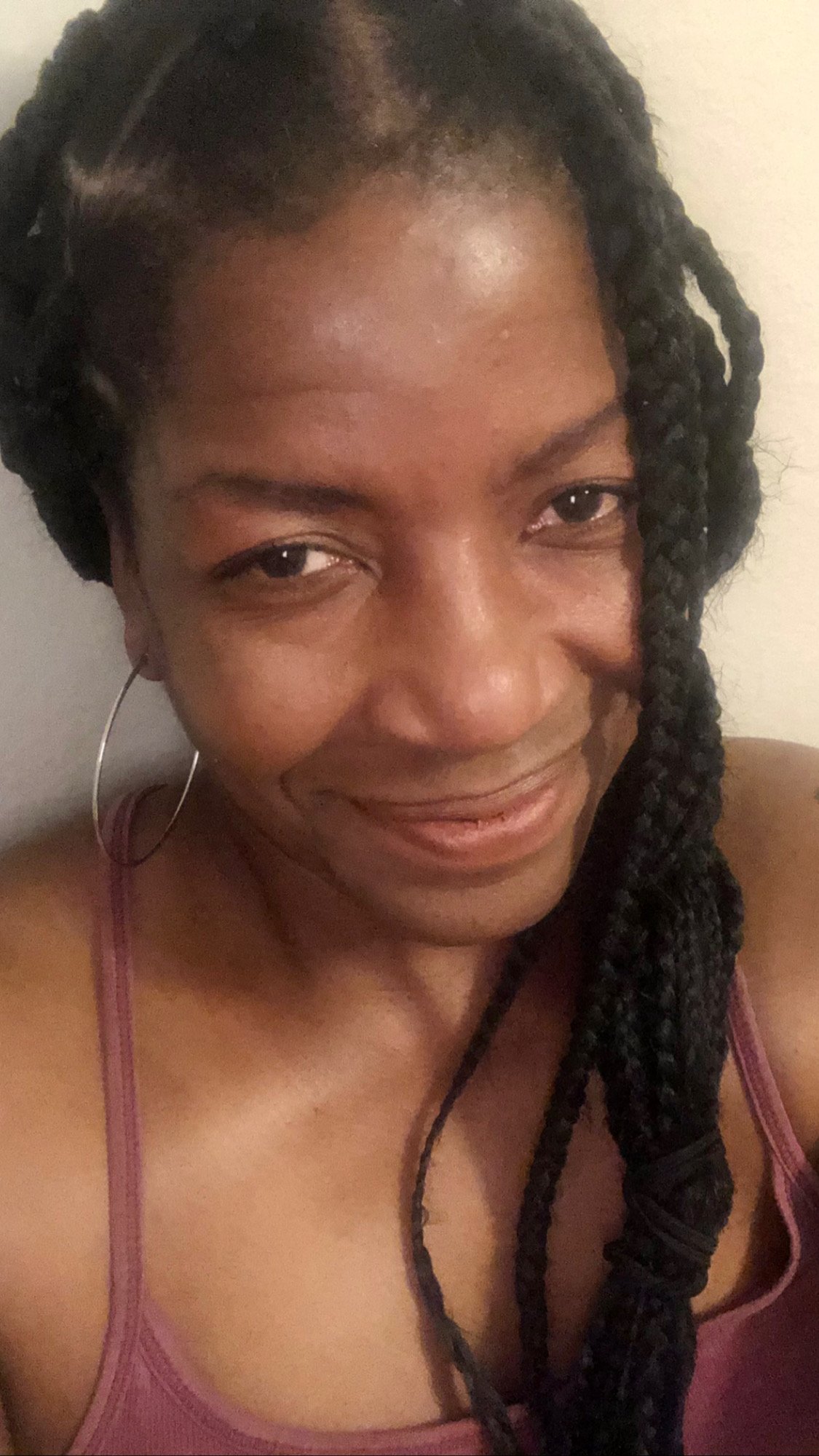
SUSCRIBE to my email newsletter below!
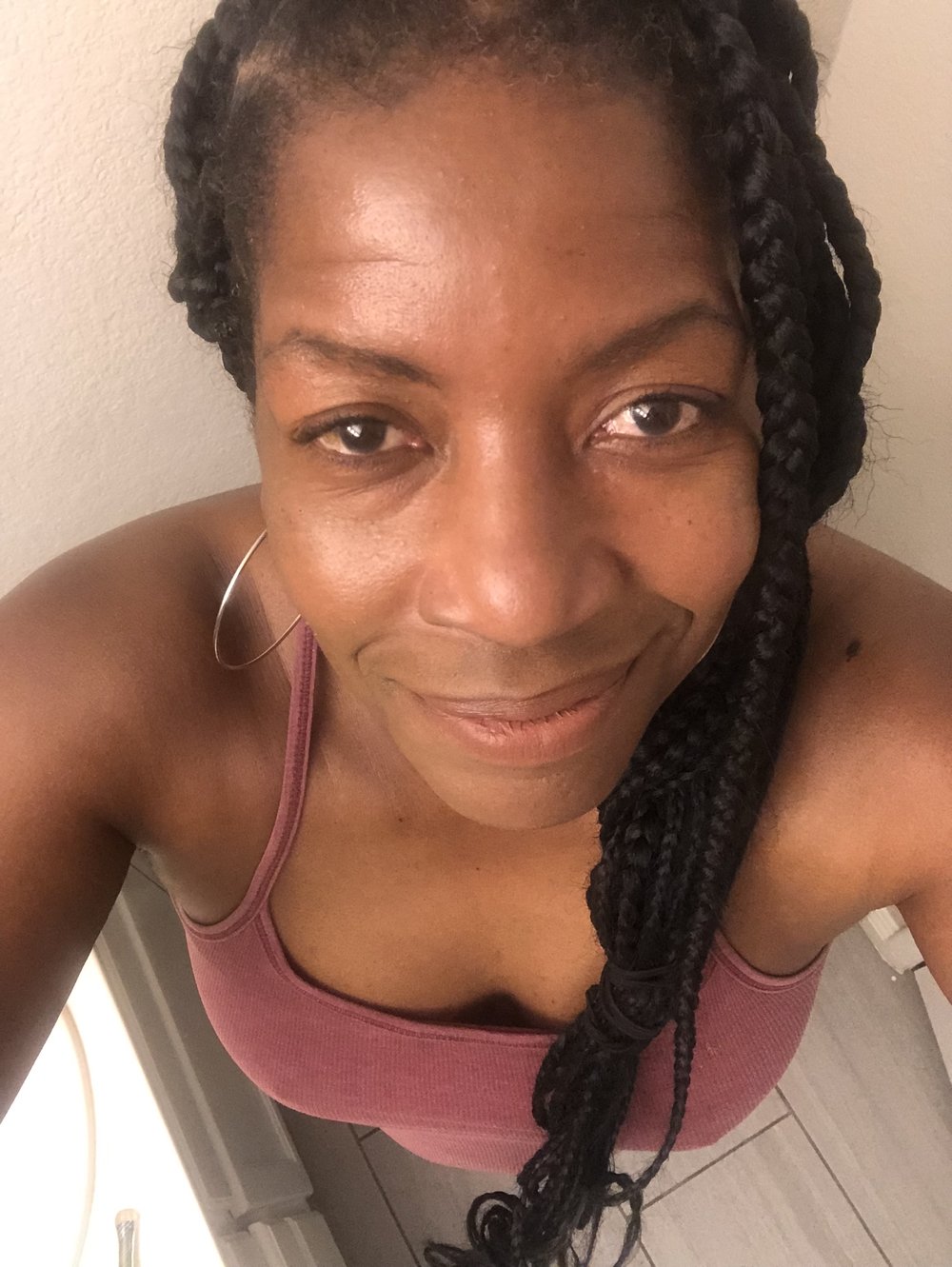 Click to learn more about the weekly volleyball classes and clinics or email info@imrpoveyourvolley.com for information
Click to learn more about the weekly volleyball classes and clinics or email info@imrpoveyourvolley.com for informationCongratulations to my seven Boys-18s Vegas Volley club players who played in two state championship finals yesterday, the 3A and 5A State champinship finals at Sunrise Mountain High School.
TOURNAMENT CHAMPIONS!
A-1 Vegas Volley VBC
In It To Win It Tournament
May 2 - 4, 2025 Tournament
Gold Medalists
18s Premier Division
Vegas Volleyball's Unsung Heroes: Celebrating Moms with Peace Love Volleyball Shirts
Ready to energize your volleyball mom journey?
Subscribe to my 'Producing Powerful Passionate Peaceful Players' email list above on ImproveYourVolley.com.
You'll receive energy-boosting tips, exclusive insights from me, Coach April Chapple on maintaining momentum in volleyball.
Let's power up the Vegas volleyball scene together!
Recent Articles
-
Tips For Short Volleyball Players: Top Strategies to Beat Big Blockers
Jan 21, 26 04:56 PM
You don't need to be 6 feet tall to dominate at the net. Learn my tips for short volleyball players to use to outsmart bigger blockers and score more points. -
Essential Skills for a Hitter in Volleyball: Tips For Short Attackers
Jan 11, 26 07:05 AM
A short hitter in volleyball can aim the ball for the seam of the block to score since its harder for defenders to block at the net or dig up in the back row. -
10 Hitting Tactics Short Volleyball Players Use Against Big Blockers
Jan 11, 26 06:57 AM
These are 10 hitting tactics that short volleyball players, can rely on hit against and sideout and score against teams with big blockers in the front row.
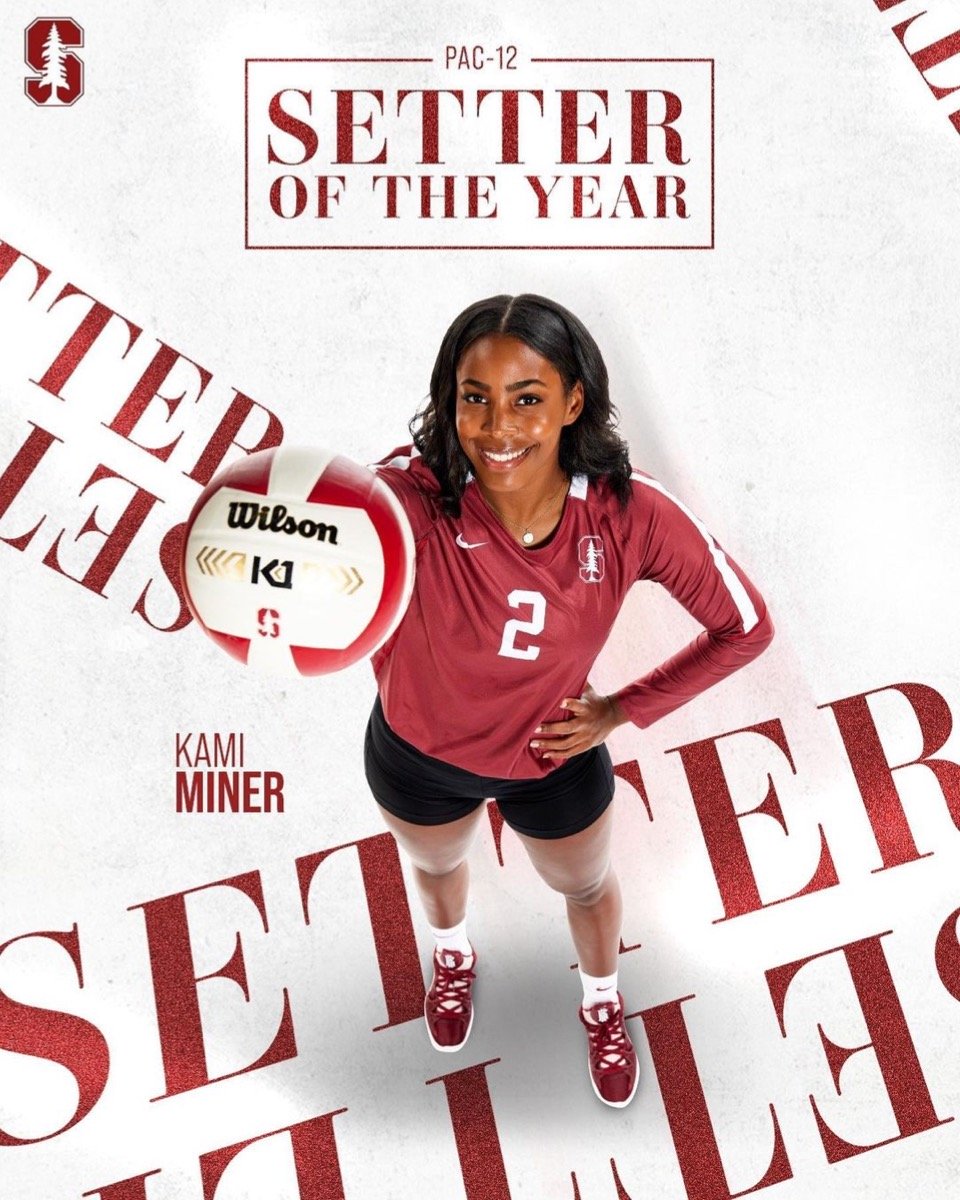 Numerous players I've coached have gone on to play at top collegiate programs, with some even pursuing national team and semi-professional careers.
Kami Miner Pac 12 Setter of the Year former coach April Chapple private client, Boot Camp class and Breakfast Club 3-year player
Numerous players I've coached have gone on to play at top collegiate programs, with some even pursuing national team and semi-professional careers.
Kami Miner Pac 12 Setter of the Year former coach April Chapple private client, Boot Camp class and Breakfast Club 3-year player